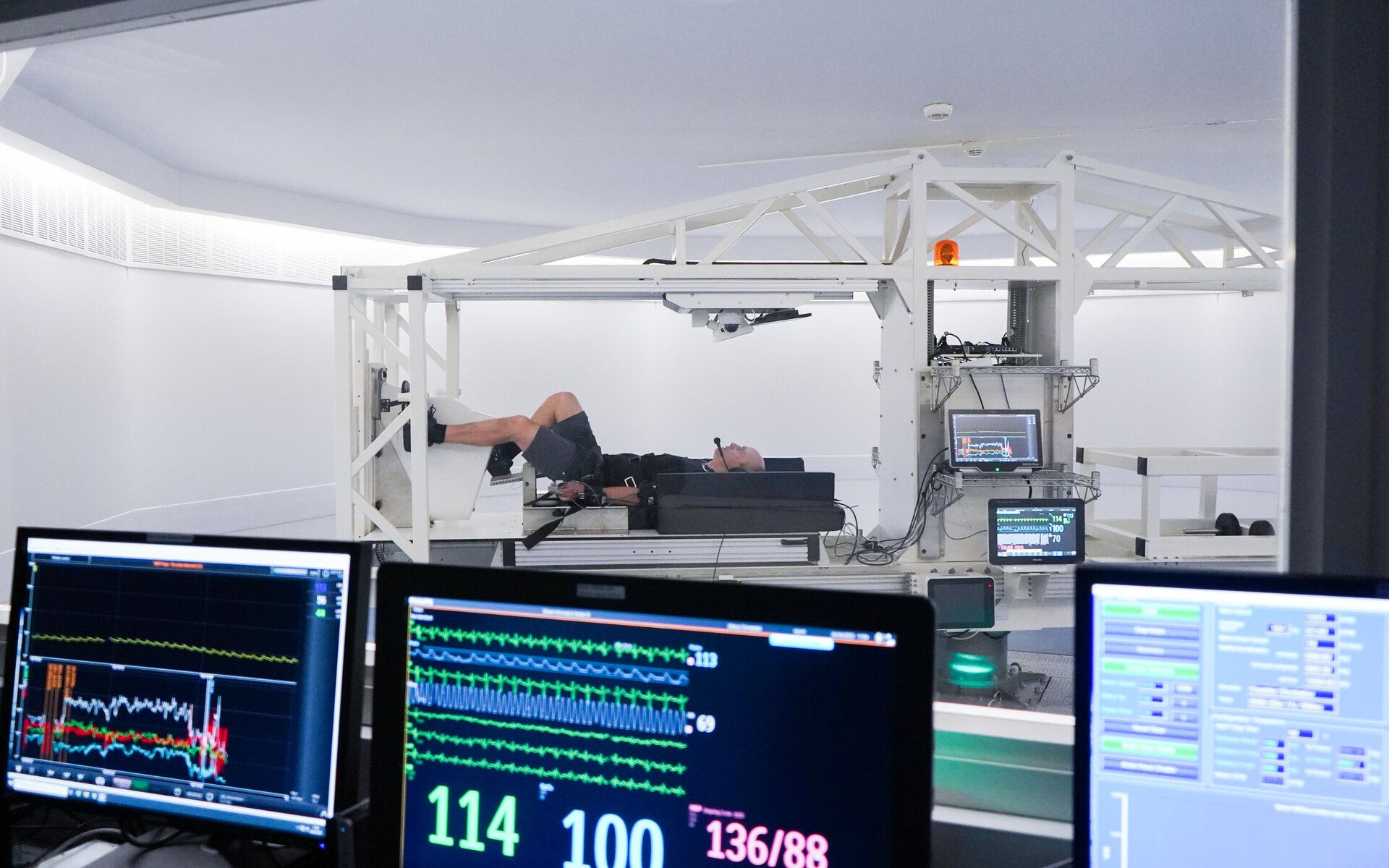They’re affectionately known as “pillownauts,” volunteers who commit to spending weeks in bed to advance research into astronaut health. While bedridden, the pillownauts will lie with their heads tilted at 6° below the horizontal with their feet up to increase blood flow to their heads. They also perform work-related tasks, are subject to regular medical exams, and take their meals, showers, and bathroom breaks, all while remaining in bed. The purpose of this research is to simulate the effects of weightlessness on the human body, including muscle atrophy, bone density loss, and cognitive effects.
The European Space Agency (ESA) recently kicked off another round of pillownaut research, the Bed Rest with Artificial gravity and Cycling Exercise (BRACE) study, at the Institute for Space Medicine and Physiology (MEDES) in Toulouse, France. For this study, twelve volunteers will remain inclined (with their heads below their feet) for sixty days and exercise using cycles adapted to their beds and centrifuges that simulate gravity. Beyond measuring the effects of microgravity on astronaut health, this study also aims to measure the effectiveness of countermeasures used to address them.
Continue reading “Artificial Gravity Tests on Earth Could Improve Astronaut Health in Space”
